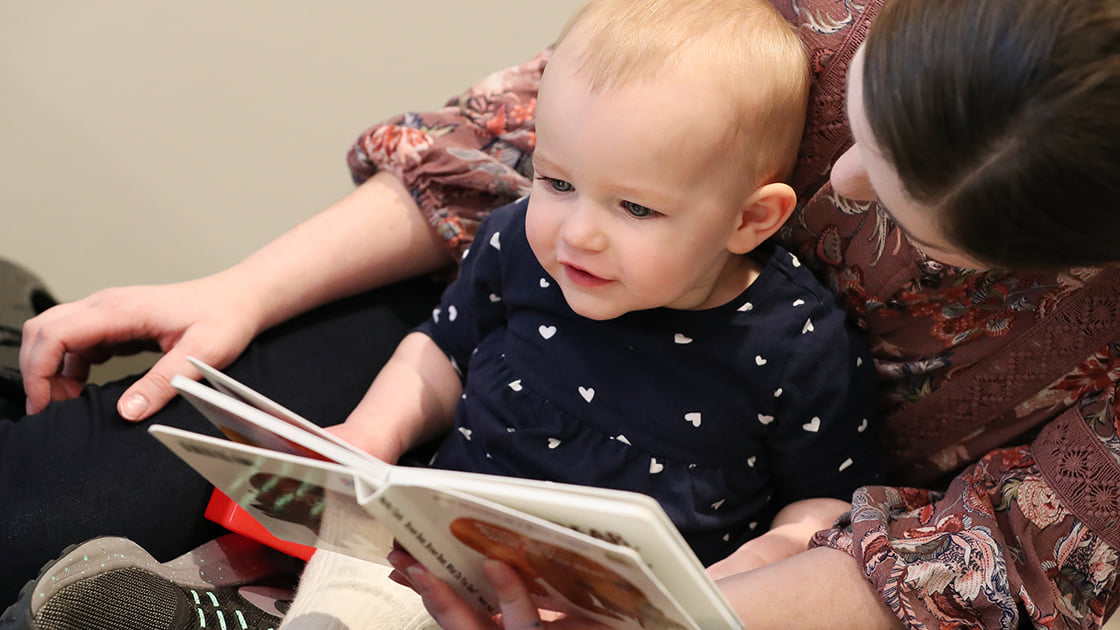
Reading with children is important during each of their developmental stages. Even small babies benefit from the bonding time with their parents and caregivers, and learning words that become the building blocks of language. At the Buffett Early Childhood Institute at the University of Nebraska, teams work with schools in the Omaha metro through the Superintendent’ Early Childhood Plan to prioritize high-quality literacy experiences in classrooms and activities parents can do at home.
We talked to Emly Daberkow, Carol Burk, and Kelly Jones, early childhood education specialists at the Nebraska Department of Education, to answer some common early literacy questions from parents and families. Follow NDE Step Up to Quality on Facebook for more reading tips for families and early educators.
Q: Why is it important to read to or with my child? What are the benefits?
A: Reading with our children is so important! It is not only a great bonding experience, but also helps children develop early language and literacy skills, along with increased cognitive development and memory skills that are all fundamental to learning. Reading with your child should be an enjoyable experience, preparing for them to grow up to be lifelong readers.
Q: My baby is just a few months old. Can they even understand a story? When should I start reading to them?
A: A baby’s brain develops rapidly, taking in all the sights, sounds, smells, and touches (and sometimes tastes—don’t worry, it’s normal to chew on books!) that are encountered during this special time of shared book-reading. You can start reading to your baby from the very beginning, as a baby’s brain is soaking up all of your language and working to learn how to communicate.
Q: Besides reading books, what else can I do to build my child’s language skills?
A: Talking with your baby, even if they can’t respond, by telling them what you are doing or what they are doing, is a great way to develop language skills. For example, while changing a diaper, you can tell them, “I’m going to button your onesie,” or “Wow, you have strong kicks!” Having conversations with your child at the grocery store, in the car, while cooking or going for a walk are simple ways to develop language skills. Also, singing, reciting nursery rhymes, or playing games are fun ways to engage with language.
Q: My toddler is very active and always on the move. How can I incorporate some reading time into our busy schedule?
A: Many toddlers are very active—incorporating high-interest level books may do the trick. Also, establishing a routine of reading before naptime, after bathtime, or supper will help your child understand the importance of reading and know what comes next. This can become a cherished time for both you and your child.
Q: How can I make sure my child is getting the most out of our reading time? Should I ask them questions or point out certain words or pictures? What kind of books should we read?
A: Make reading time enjoyable! There is no script to follow, and each reading time may be different. You can stop to point out pictures, share something you're thinking, point out letters, or talk about how a character may be feeling. Children love to read the same book over and over (and over again), but this is perfectly normal, giving them a sense of comfort and knowing what to expect.
Q: Does my preschooler or Kindergartner need to know all their letters and sounds?
A: Knowing letter names and sounds is an important pre-literacy skill, however, all children develop at different rates. You can develop these skills by pointing out letters on signs or books, playing rhyming games, providing writing materials for children, or talking about the letters found in each family member's names.

